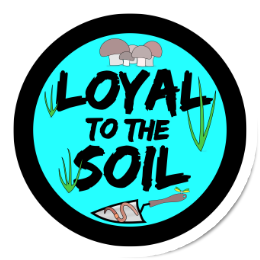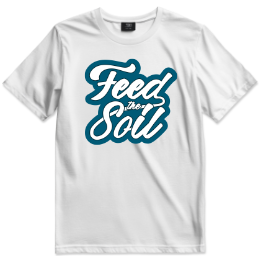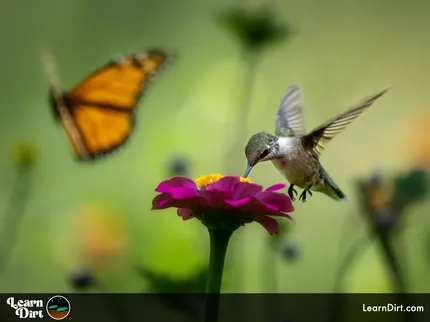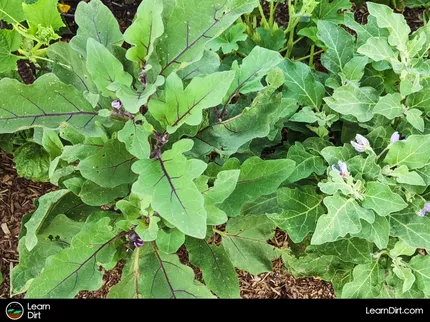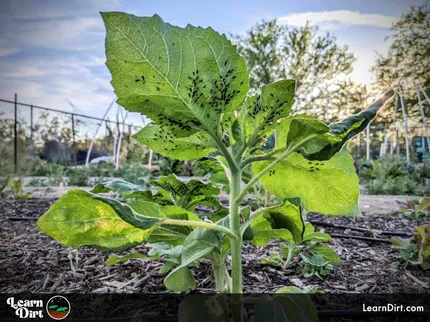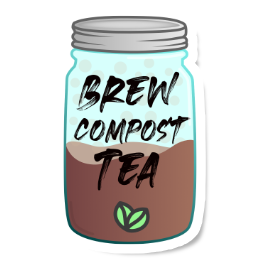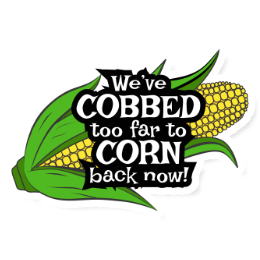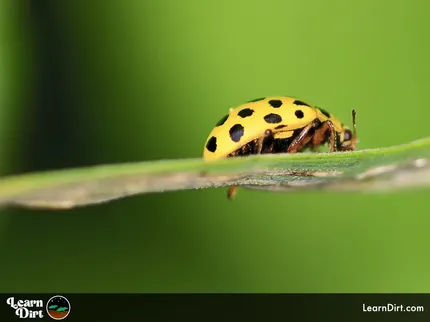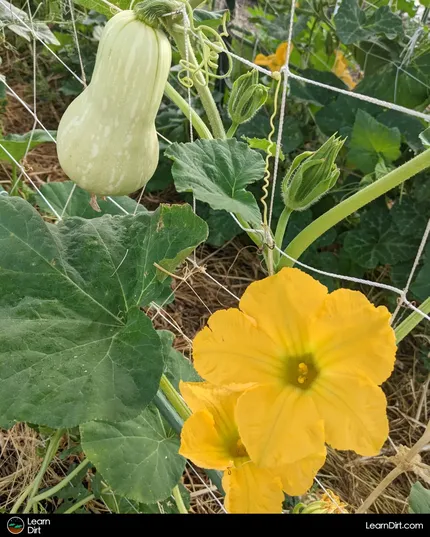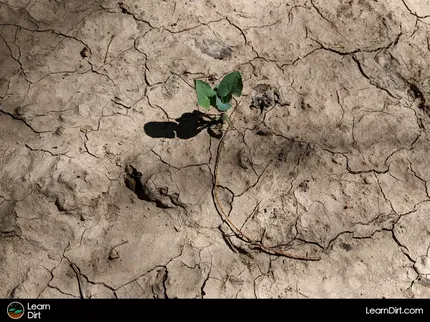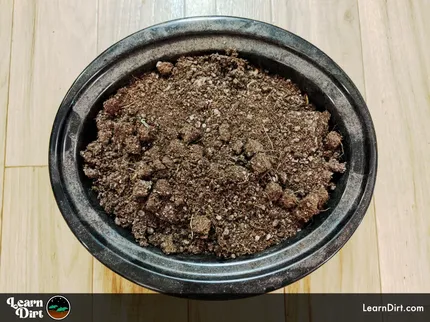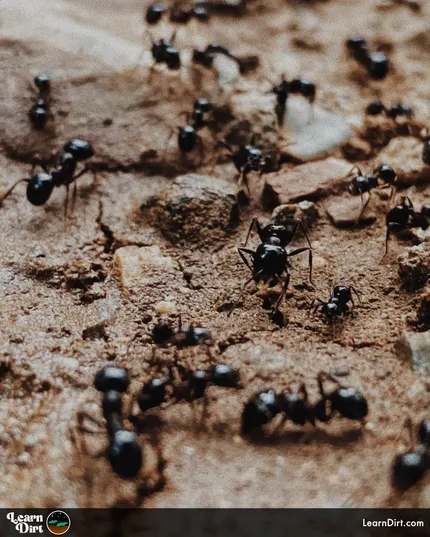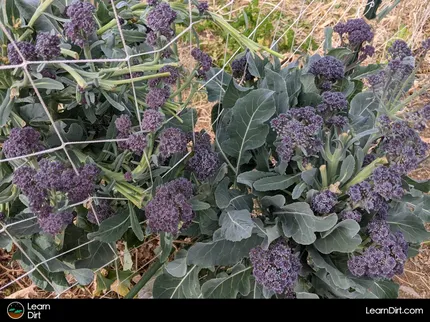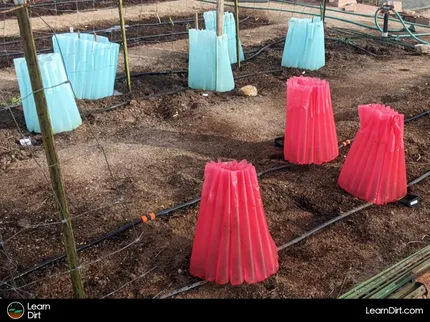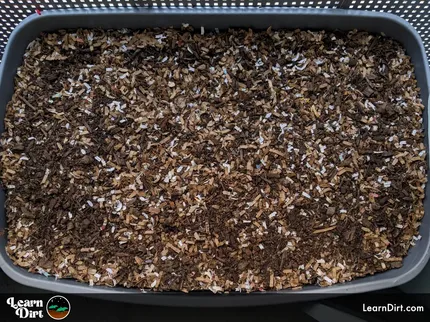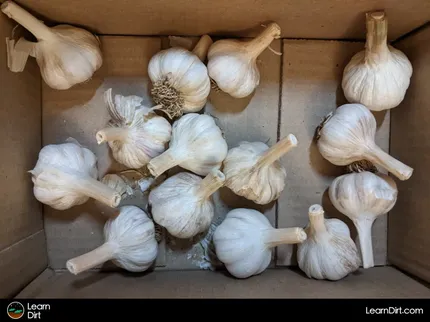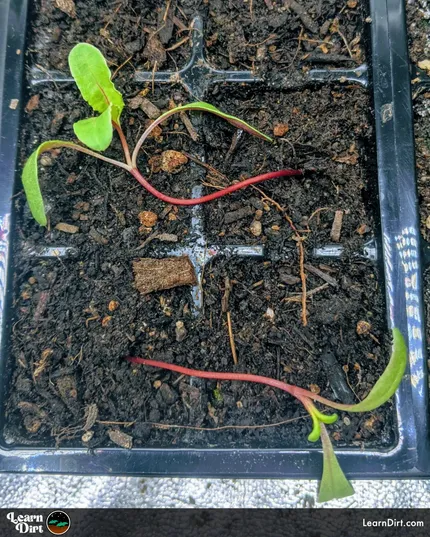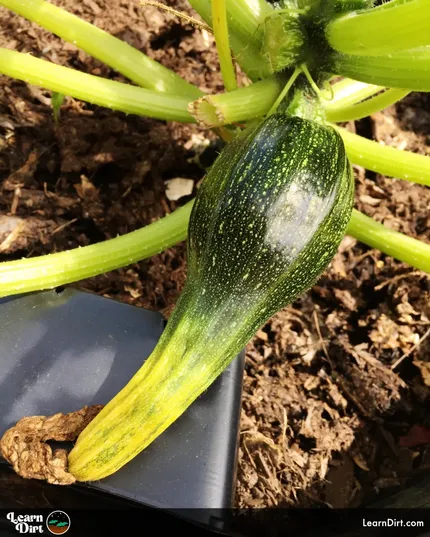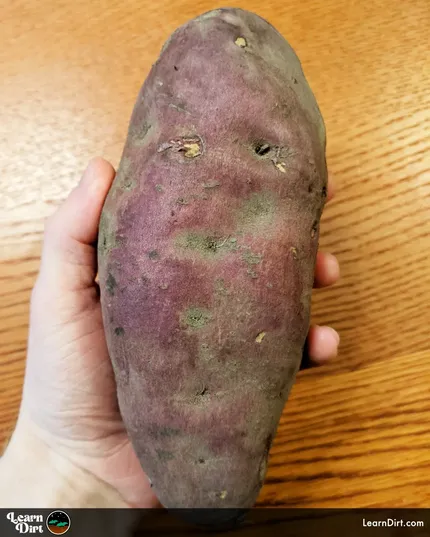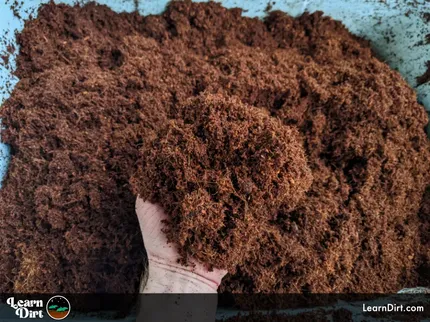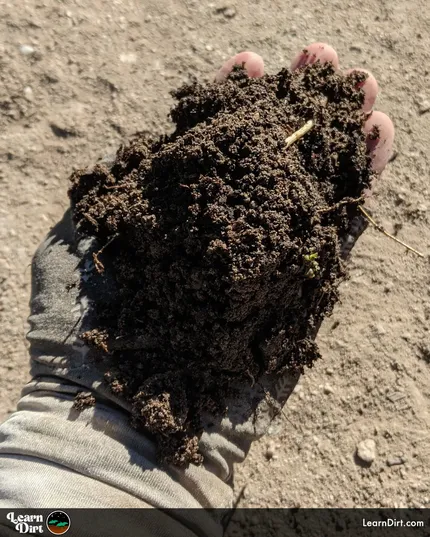Table of Contents
- What Is a Black Soldier Fly?
- Black Soldier Fly Lifecycle
- Are Black Soldier Flies Beneficial?
- Black Soldier Fly Farming
- Black Soldier Fly Disadvantages
- FAQs
- Final BSFL Thoughts...
* Our articles never contain AI-generated slop *
Curious about black soldier flies, and whether they're a benefit or a nuisance in your garden and compost?
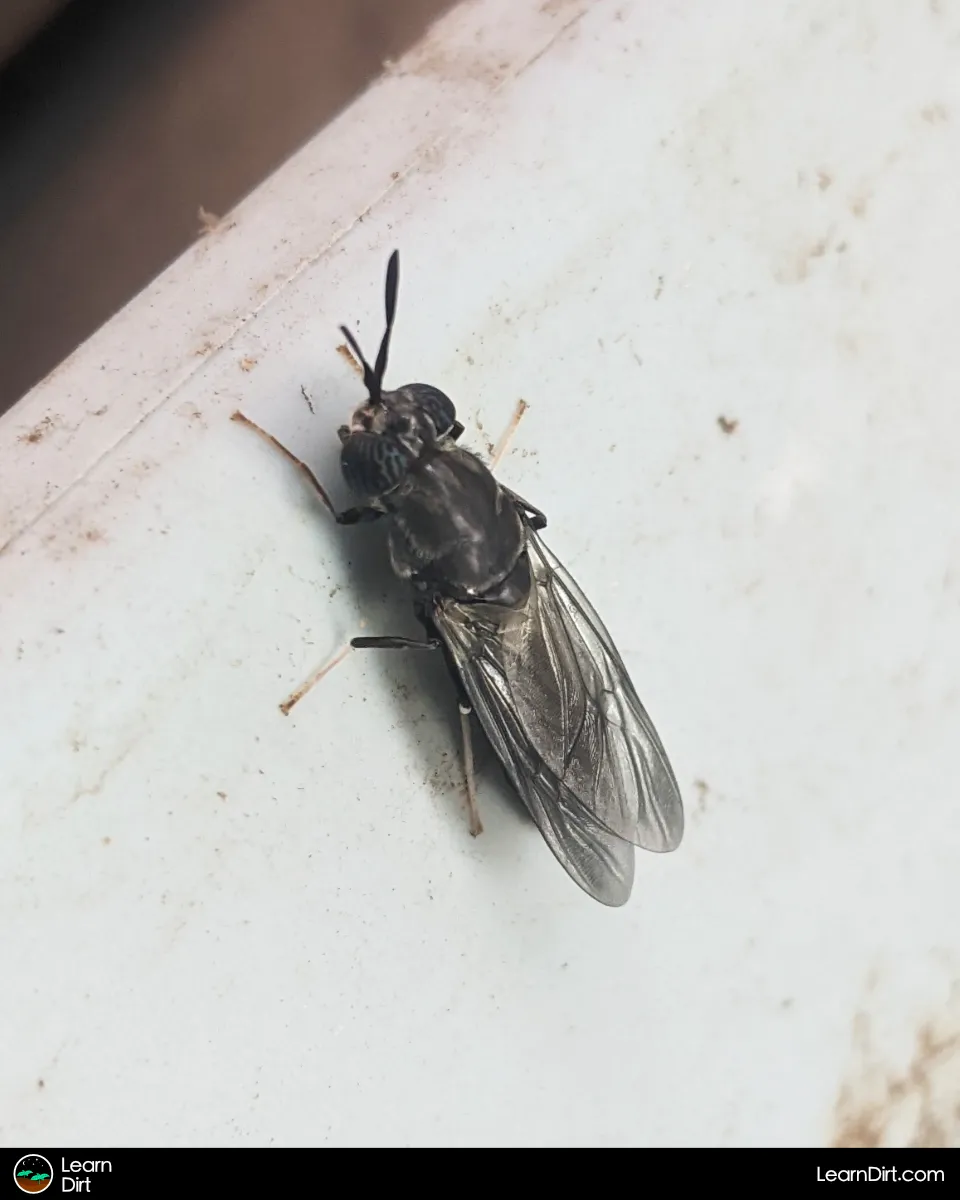
I believe that most insects have a role to play in the garden. Getting to know each bug species that calls your garden home is so important if you want to understand the delicate balance of the ecosystem and to be able to make informed decisions without unintended consequences.
What Is a Black Soldier Fly?
Black soldier flies and their larvae (BSFL) are a gardener's best friend.
Disclaimer: This post may contain affiliate links. Refer to the privacy policy for more information.
Let's learn about what these critters do, and why you should have some in your garden.
What Do Black Soldier Flies Look Like?
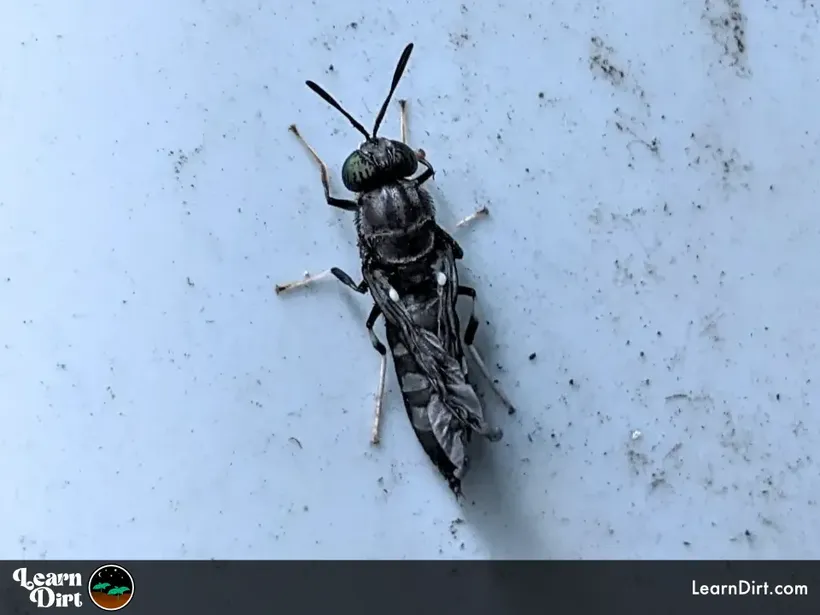
Befriend them and they'll reward you greatly
Black Soldier Fly Size
Black soldier flies are about the size of an average wasp.
Here's me holding one for size reference:
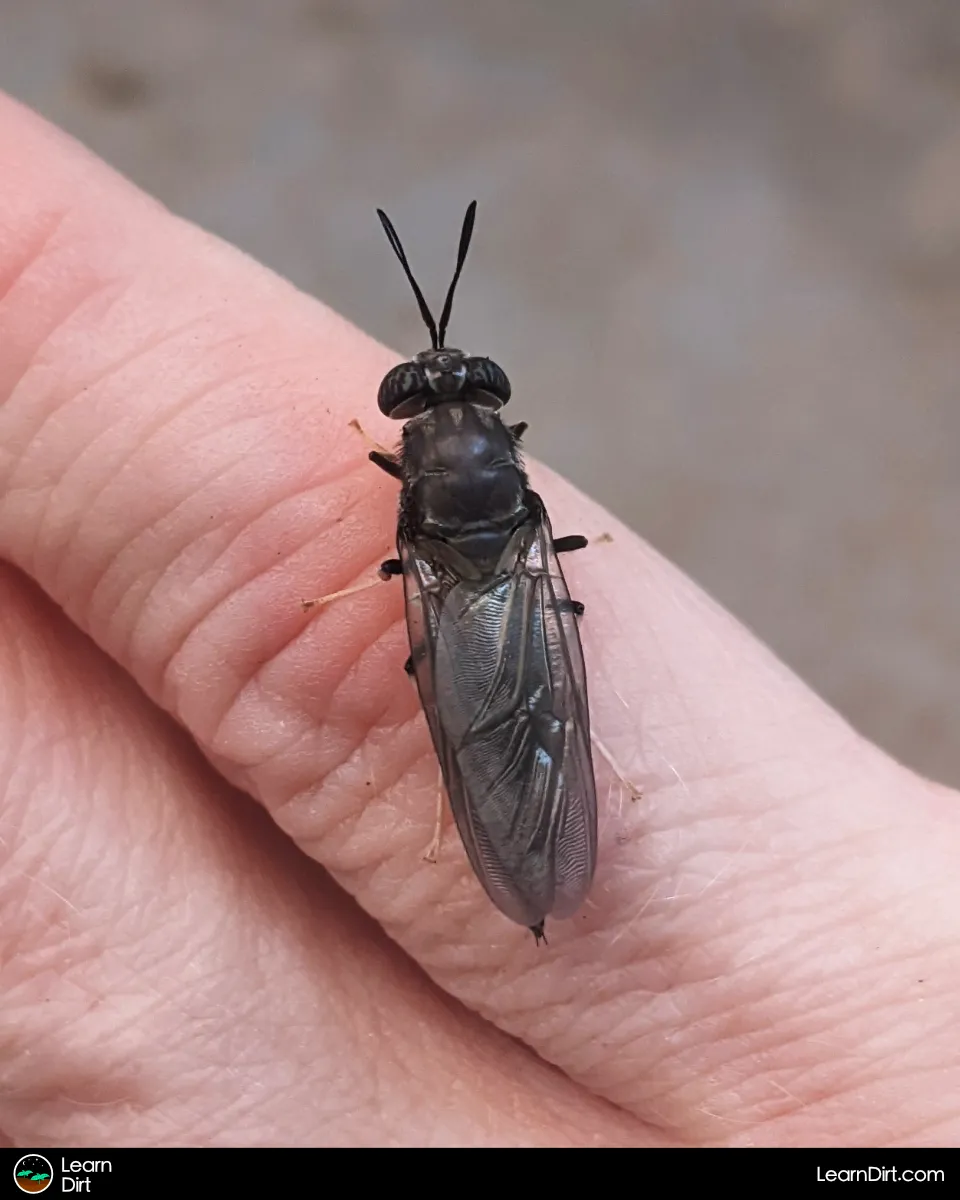
What Do Black Soldier Flies Eat?
Black soldier flies are revered in any organic garden for their ability to break down food waste and cycle nutrients faster than almost any other creature.
Like worms on steroids, the larvae of black soldier flies can turn almost any food scraps into rich black garden gold in just a few days.
They are decomposers, and particularly love anything that's moist and breaking down.
Join The Grower's Community
Whether you cultivate vegetables, house plants, succulents,
mushrooms, flowers, cannabis, or more...
you're welcome here 🌱
Check It Out!
Black Soldier Fly Habitat
Soldier flies absolutely love the heat. I often notice them show up in my compost bin once daytime temps exceeds 80F (26.6C), which is about the temperature they breed at. In warm conditions where worms often slow down, black soldier fly larvae take over macrodecomposition in compost piles.
If you rely on worms during the cool season to help with your compost, black soldier fly larva will make the perfect companion for the warmer half of the year if you're in a warm or hot climate.
Where Do Black Soldier Flies Live?
Black soldier flies are native to the New World tropics and the temperate regions in South America.
They've proven to be extremely adaptable, however, and now appear on every continent except Antarctica.
Recently they've grown in popularity around the globe as a way to turn food waste into compost, while simultaneously providing larvae as animal feed.
Black Soldier Fly Lifecycle
From egg to egg, the BSF lifecycle lasts about 2 months - although this can vary pretty drastically depending on temperature.
Insects like soldier flies are ectothermic, meaning they do not generate their own heat. This makes them highly dependent on the environmental temperature to regulate their metabolism, and growth and reproduction rates.
The warmer it is, the more active they become.
Black Soldier Fly Eggs
Eggs are small and numerous. You likely won't see them in your compost bin, but 1 black soldier fly can lay hundreds.
Because of the volume of eggs and relatively short lifecycles, black soldier fly populations can boom over just a couple of months.
This is great news if you compost your food scraps, or if you have chickens, pets, or livestock to feed them to!
Black Soldier Fly Larvae
Black soldier fly larvae have absolutely voraceous appetites, and are the stage of growth which we're most interested in as gardeners.
The larval stage is when BSF turn all your food scraps and manure into rich black frass - which can then be composted further for garden use.
They can grow as much as 10x during their larval stage, which lasts around a month.
Black Soldier Fly Prepupae
During the prepupal stage, soldier flies stop eating and prepare to pupate. They'll spend around a week in this stage.
Black Soldier Fly Pupae
Pupation takes 1 or 2 weeks during which they transform into fully-formed adult flies capable of flight.
Adult Stage
As adults, soldier flies mate and then female black soldier flies look for rotting food or manure to lay their eggs near / in.
Soon after, they die and the lifecycle starts over with the new generation of eggs.
Are Black Soldier Flies Beneficial?
For gardeners there are tremendous advantages to befriending and recruiting black soldier flies to help cycle garden nutrients.
Dig Cool Merch?
Faster Compost Production
One of the main reasons why BSFL are so beneficial to gardeners is because they are absolutely incredible composters.
Everyone is familiar with worms as great composters, breaking down organic matter into rich worm castings that plants love.
Somewhat lesser-known and more effective are black soldier fly larvae, which can break down organic matter much faster than worms. Some estimates say up to 7x faster!
Black soldier fly larvae have voracious appetites and will chew through large pieces of produce in mere days. BSFL can eat twice their weight in food every day!
They also have incredibly powerful digestive enzymes, which can even break down thinks like bone and cartilage.
While worms works slowly in cooler temperatures, BSFL love the heat and can move faster and eat more in hot temperatures.
As incredibly efficient decomposers, BSFL are a valuable asset for any gardener looking to create healthy soil during the warm season!
Where I live in Arizona, that means worms make great macrodecomposers in winter, and black soldier fly larvae do the heavy lifting in summer.
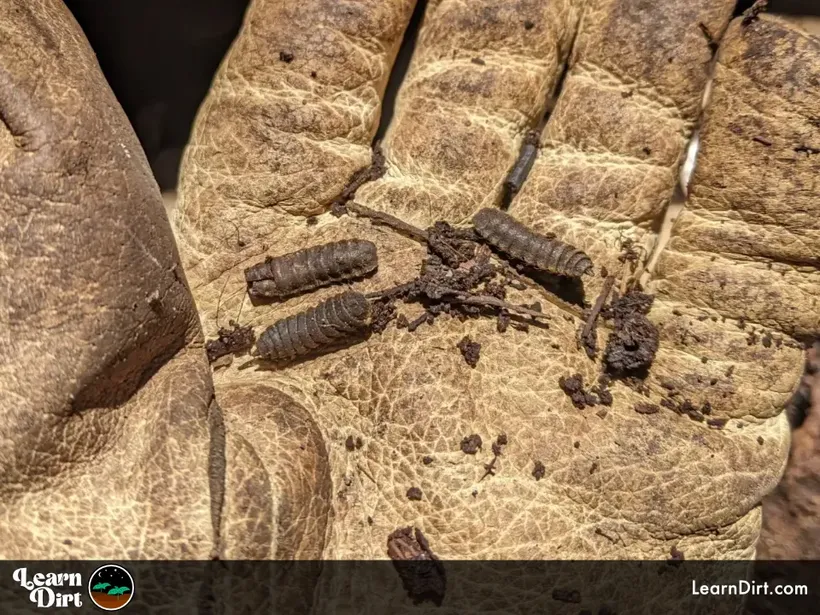
Food Waste Reduction
But BSF larvae aren't just good for composting. They also play an important role in reducing food waste.
In fact, BSF larvae have been used in commercial settings too. There they break down food waste and create valuable byproducts like animal feed and biodiesel.
One super common approach people take is feeding their food scraps to BSFL, then feeding the BSFL to their chickens. This is a sweet way to close the nutrient loop and keep everything cycling 'round rather than going to waste.
Nutrient Cycling
BSFL can tear through food scraps and manures in record time, rapidly unlocking valuable nutrients.
What they produce is frass which is not exactly compost, but is valuable to gardeners for plant nutrition nonetheless.
Frass is also one step closer to compost, because it can be broken down further by worms, isopods, and all manner of microbes.
This makes BSFL a great way to speed up the time it takes to cycle nutrients from food scraps and manures back into an accessable and usable form for plants.
BSFL as Pet and Livestock Feed
High in protein and calcium, black soldier fly larvae are commonly fed to animals - whether whole or dehydrated and ground up to mix into other feeds.
Black Soldier Fly Farming
Now that you know some of the benefits of recruiting your own army of soldier flies to help you break down you excess organic matter, how do you actually go about doing it?
Let's take a look at the black soldier fly farming process:
Black Soldier Fly Larvae Compost Bin
My bins are primarily for compost and soldier flies, isopods, worms, beneficial bacteria, fungi, and all show up on their own. I don't treat compost bins, BSFL bins, and worm bins separately - but you certainly can if you prefer.
How to Attract Black Soldier Flies
Soldier flies are looking for the following conditions:
- Rotting food or manure
- Moisture
- Heat
These are the exact conditions in a well-maintained compost bin during the hot season.
In my experience, when I provide these conditions in my compost bins and it's 80F+ (27C+) outside, they'll show up on their own.
Raising Black Soldier Fly Larvae
Feed them food scraps or manure frequently. BSFL can chomp down a pretty wild volume of decaying material so be sure that you keep them well-fed!
I've seen the soldier fly larvae in my bin tear through an entire large mushy onion in 4 days flat. It's impressive to witness just how fast they can eat.
Black Soldier Fly Frass
Technically what you end up with after BSFL burn through all the organic matter you give them is frass - a nice way of saying bug poop.
Frass can be used directly for plants, or composted further first.
If your BSFL bin is separate from your regular compost pile, simply move the frass to your compost once they're done with it and let it compost for a few months.
Black Soldier Fly Disadvantages
While these are one of the most beneficial insects you can attract to your garden, they aren't completely without any disadvantages.
Difficulty Attracting
It can sometimes be difficult to attract black soldier flies to your compost. They're pretty selective about where they lay their eggs, and need a moist pile of decomposing organic matter that's warm enough to lay eggs in.
You'll need to create the right conditions if you want to attract BSF's to your compost pile.
If you're struggling to attract them or aren't seeing any soldier flies showing up, you can always purchase live BSF larvae and introduce them yourself once you've got your compost conditions dialed in.
If your compost is covered or enclosed, make sure there are openings large enough for black soldier flies to get in through. They are the size of a medium wasp, and need access to the bin to lay their eggs before you'll have larvae.
Require Hot Temperatures
- Ideal temperature range: 80F - 86F (27C - 30C).
- Tolerable temperature range: 70F - 95F (21C - 35C).
Outside of these ranges, their activity diminishes substantially or they disappear altogether - moving onto warmer pastures.
This means that raising BSFL and getting their help with your compost process only work in hot climates of during the hot season.
If you don't experience these temperatures where you live, you may not be able to work with black soldier flies - though some folks do have success with them in greenhouses.
Require High Humidity
Black soldier flies need humid conditions along with the above-mentioned hot temps.
Relative humidity in the 60% - 80% range is ideal, which may be difficult to achieve in dry climates.
Where I live in the desert, this humidity range is unavailable naturally for most of the year, however black soldier flies thrive in compost bins I keep almost completely enclosed and well-watered.
I've observed that black soldier flies do not seem to tolerate my less-enclosed compost piles and prefer the increased moisture in my enclosed bins.
The more dry your climate, the more you'll want to enclose your compost or BSFL bins in order to keep the moisture level up, and the more often you should water.
Take Some Getting Used To
Some people also find black soldier flies to be a bit scary, as they're easily confused for wasps until you learn to recognize them. With time, you can easily tell them apart.
Black soldier fly larvae can be a little off-putting to folks who aren't used to watching larvae devour food scraps.
Learning to love decomposition is a necessary piece of gardening, though, so if you're not an insect lover you might have success with slowly exposing yourself to them more and more over time (exposure therapy) and learning what you can about them to help overcome any fear.
FAQs
Do Black Soldier Flies Bite?
Soldier flies don't bite or sting, and they don't spread any diseases to people. They're completely harmless to humans and pets.
They also don't harm your garden, nor do they caused any damage to plants. In fact, they don't even eat!
Rather, they'll lend a hand and help your garden to thrive.
Are Black Soldier Flies Good for Compost?
Not only are black soldier flies harmless to humans and pets, but they also play an important role in composting and soil-building!
Final BSFL Thoughts...
With a little bit of effort, attracting these compost friends is definitely worth your while.
BSF larvae are incredibly beneficial for composting and soil-building, and they are completely harmless to humans and pets.
Remember you can always buy the larvae live and introduce them if you're not seeing any show up on their own. Just make sure it's during the warm season and temps are 80F (26.6C)+ so that they breed and multiply in your compost.
Next time you see a black soldier fly in your garden, take a sec to appreciate all their hard work! They are busy keeping your soil healthy and turning food scraps into pure gold.
That's all for now, thanks for reading!
If you have any questions, comments, or would like to connect with fellow gardeners, head on over to the forum and post there.

